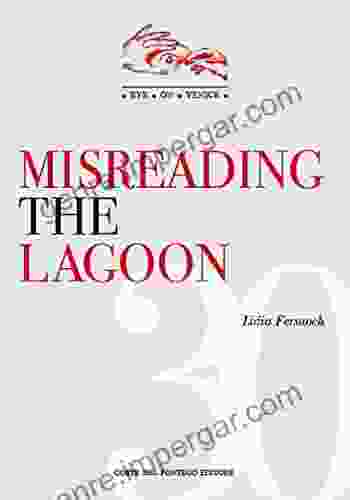An Introduction to Sociology

5 out of 5
Sociology is the scientific study of human society and social behavior. It is a vast and complex field of study that encompasses a wide range of topics, from the micro-level interactions of individuals to the macro-level structures of societies.
Sociology is a relatively new discipline, with its origins in the 19th century. However, its roots can be traced back to the ancient Greek philosophers, who were among the first to speculate on the nature of human society.
The first major sociological theorist was Auguste Comte, who coined the term "sociology" in 1838. Comte believed that society was a complex system that could be studied scientifically. He developed a theory of social evolution that proposed that societies progress through a series of stages, from a simple, primitive state to a more complex, modern state.
Other early sociologists, such as Karl Marx, Max Weber, and Émile Durkheim, also made significant contributions to the field. Marx focused on the role of economic factors in shaping social life, while Weber emphasized the importance of culture and ideas. Durkheim studied the social functions of religion and other social institutions.
Today, sociology is a well-established academic discipline that is taught at universities around the world. Sociologists use a variety of research methods to study social phenomena, including surveys, interviews, and observations. They also use statistical analysis to identify patterns and trends in social data.
Sociology has a wide range of applications in the real world. Sociologists can help us to understand social problems such as crime, poverty, and inequality. They can also help us to develop policies to address these problems.
Sociology is a fascinating and important field of study that can help us to better understand ourselves and the world around us.
Major Theoretical Perspectives in Sociology
There are a number of different theoretical perspectives in sociology. Each perspective offers a different way of understanding social phenomena. Some of the most common theoretical perspectives include:
- Functionalism: Functionalism is a theoretical perspective that emphasizes the importance of social structure and social institutions. Functionalists believe that society is a complex system that is made up of different parts that work together to maintain equilibrium.
- Conflict theory: Conflict theory is a theoretical perspective that emphasizes the role of conflict and inequality in social life. Conflict theorists believe that society is divided into different groups that compete for resources and power.
- Symbolic interactionism: Symbolic interactionism is a theoretical perspective that emphasizes the importance of symbols and meanings in social life. Symbolic interactionists believe that people interact with each other through symbols and that these symbols shape their behavior and their understanding of the world.
Key Concepts in Sociology
Sociology has a number of key concepts that are used to understand social phenomena. Some of the most important key concepts include:
- Social structure: Social structure refers to the patterns of social relationships that exist in a society. It includes things like social institutions, social roles, and social norms.
- Social inequality: Social inequality refers to the unequal distribution of resources and power in a society. It can be based on factors such as race, class, gender, and religion.
- Social change: Social change refers to the changes that occur in a society over time. It can be caused by a variety of factors, such as technological advances, economic changes, and political revolutions.
The Importance of Sociology
Sociology is a valuable field of study that can help us to better understand ourselves and the world around us. It can help us to understand social problems and develop policies to address them. It can also help us to appreciate the diversity of human cultures and to promote tolerance and understanding.
If you are interested in learning more about sociology, I encourage you to read the book An to Sociology. This book provides a comprehensive overview of the field, covering its history, major theoretical perspectives, and key concepts.
An to Sociology is an essential resource for anyone who wants to understand the social world we live in.
5 out of 5
Do you want to contribute by writing guest posts on this blog?
Please contact us and send us a resume of previous articles that you have written.
 Book
Book Novel
Novel Page
Page Chapter
Chapter Text
Text Story
Story Genre
Genre Reader
Reader Library
Library Paperback
Paperback E-book
E-book Magazine
Magazine Newspaper
Newspaper Paragraph
Paragraph Sentence
Sentence Bookmark
Bookmark Shelf
Shelf Glossary
Glossary Bibliography
Bibliography Foreword
Foreword Preface
Preface Synopsis
Synopsis Annotation
Annotation Footnote
Footnote Manuscript
Manuscript Scroll
Scroll Codex
Codex Tome
Tome Bestseller
Bestseller Classics
Classics Library card
Library card Narrative
Narrative Biography
Biography Autobiography
Autobiography Memoir
Memoir Reference
Reference Encyclopedia
Encyclopedia Lynne Olson
Lynne Olson Liam Drew
Liam Drew Sheelagh Kelly
Sheelagh Kelly Susan J Westrick
Susan J Westrick Maggie Wallem Rowe
Maggie Wallem Rowe Lisa Holewa
Lisa Holewa Tshimanga Kongolo
Tshimanga Kongolo Michael W Levine
Michael W Levine Matthew Rozell
Matthew Rozell Malcolm Knox
Malcolm Knox Lewis Walker
Lewis Walker Lisa Ferland
Lisa Ferland Luciano Floridi
Luciano Floridi R W Hoffmann
R W Hoffmann Michael Harmata
Michael Harmata Lester Tobias
Lester Tobias Robert Wilder
Robert Wilder Lester W Schmerr
Lester W Schmerr Lola R Marie
Lola R Marie Wendy Howell
Wendy Howell
Light bulbAdvertise smarter! Our strategic ad space ensures maximum exposure. Reserve your spot today!

 Mitch FosterUnlock the Secrets of Genshin Impact: An In-Depth Strategy Guide for Smooth...
Mitch FosterUnlock the Secrets of Genshin Impact: An In-Depth Strategy Guide for Smooth... Brandon CoxFollow ·15.1k
Brandon CoxFollow ·15.1k Michael ChabonFollow ·8.1k
Michael ChabonFollow ·8.1k Preston SimmonsFollow ·2.2k
Preston SimmonsFollow ·2.2k Chance FosterFollow ·13.9k
Chance FosterFollow ·13.9k Jorge AmadoFollow ·14k
Jorge AmadoFollow ·14k Floyd RichardsonFollow ·2k
Floyd RichardsonFollow ·2k Albert CamusFollow ·17.9k
Albert CamusFollow ·17.9k Milton BellFollow ·5.5k
Milton BellFollow ·5.5k

 J.D. Salinger
J.D. SalingerThe Montefeltro Conspiracy Renaissance Mystery Decoded
In the heart of the Italian Renaissance, a...

 Ryūnosuke Akutagawa
Ryūnosuke AkutagawaElan Vital Magazine: A Literary Sanctuary for the Mind...
In this fast-paced digital age, where...

 Derek Bell
Derek BellCode Biology: Unveiling the New Science of Life
Every living organism, from...

 Rick Nelson
Rick NelsonUnleash the Darkness: Dive into the World of Villain Arts...
Prepare to be...

 Tony Carter
Tony CarterEmbark on a Scientific Odyssey: Unveil the Secrets of...
In an era where environmental concerns...
5 out of 5












